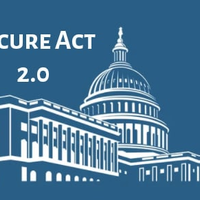- TPS Group
- Articles
Navigating the Retirement Security Rule: Enhancing Fiduciary Standards for Financial Advisers
Posted on May 7, 2024
On September 23, 2024, the Retirement Security Rule will take effect, a pivotal regulatory update issued by the U.S. Department of Labor (DOL) aimed at bolstering retirement investment protection.
Continue readingProtecting Retirement Assets from Cyber Threats
Posted on Apr 10, 2024
Cybersecurity is critically important for retirement accounts due to the substantial financial resources and sensitive personal data they contain. Retirement accounts like 401(k)s and pension plans represent a significant portion of an individual's financial wealth, accumulated over their working years.
Continue readingIRS Rollover Chart
Posted on Mar 14, 2024
This is an “IRS Rollover Chart” as it related to retirement plans and IRAs.
Continue readingRetiring Overseas: Pros and Cons of International Retirement
Posted on Mar 11, 2024
Retiring abroad can be an attractive option for individuals seeking a change of scenery, a lower cost of living, or new cultural experiences and adventures during their golden years. While the idea of retiring overseas is enticing, it comes with both advantages and challenges that prospective retirees should carefully weigh.
Continue readingHow Your HSA Can Supplement Retirement Savings
Posted on Feb 16, 2024
HSAs offer a triple tax advantage for retirement savings—contributions are tax-deductible, earnings grow tax-free, and withdrawals for qualified medical expenses are also tax-free. By contributing the maximum allowed, maintaining a cash reserve for short-term expenses, and investing the rest, individuals can maximize their retirement savings and healthcare cost management.
Continue readingA Fresh Start: Financial Planning for the New Year
Posted on Jan 18, 2024
Embarking on a journey of financial planning for the new year requires dedication and strategic thinking. By budgeting wisely, building an emergency fund, managing debt, saving for goals, reviewing investments, planning for retirement, and continually educating yourself, you’ll pave the way for financial security and peace of mind in the year ahead.
Continue readingGenerational Savings: Boomers to Gen Z
Posted on Dec 19, 2023
Each generation has its unique approach to savings, shaped by their specific economic, political, and societal contexts. Baby Boomers focus on securing retirement, Gen X balances familial responsibilities with future planning, Millennials prioritize short-term goals amid economic challenges, and Gen Z, as digital natives, is just beginning to navigate personal finance.
Continue readingLong-Term, Part-Time Rules
Posted on Nov 14, 2023
As part of the SECURE Act, Long-Term, Part-Time (“LTPT”) rules were created in 2019. Effective for plan years beginning after 12/31/2020, 401(k) plans must begin to track employment of LTPT employees and, once eligible, the employees defined as LTPT employees must be allowed to enter a retirement plan solely for deferral purposes.
Continue readingDon’t Let Health Care Costs Derail Your Retirement
Posted on Oct 10, 2023
One common misconception is that Medicare is free. While most people rely on Medicare coverage once they retire, they must still plan to pay premiums, deductibles, and co-pays. Medicare Part A (hospital insurance) is free for most retirees, but Part B, medical insurance, is not. In 2023, Medicare Part B premiums start at $164.90 per person per month but can cost more depending on your income.
Continue readingEmployers: Now’s the Time to Act!
Posted on Sep 15, 2023
If you’re an employer with a SIMPLE IRA plan and want to switch to a 401(k) profit-sharing plan by January 1, 2024, you must notify employees by November 1, 2023. A 401(k) profit-sharing plan offers discretionary contribution employer matches or profit-sharing each year, with the amount determined by the company's financial wellness.
Continue reading









